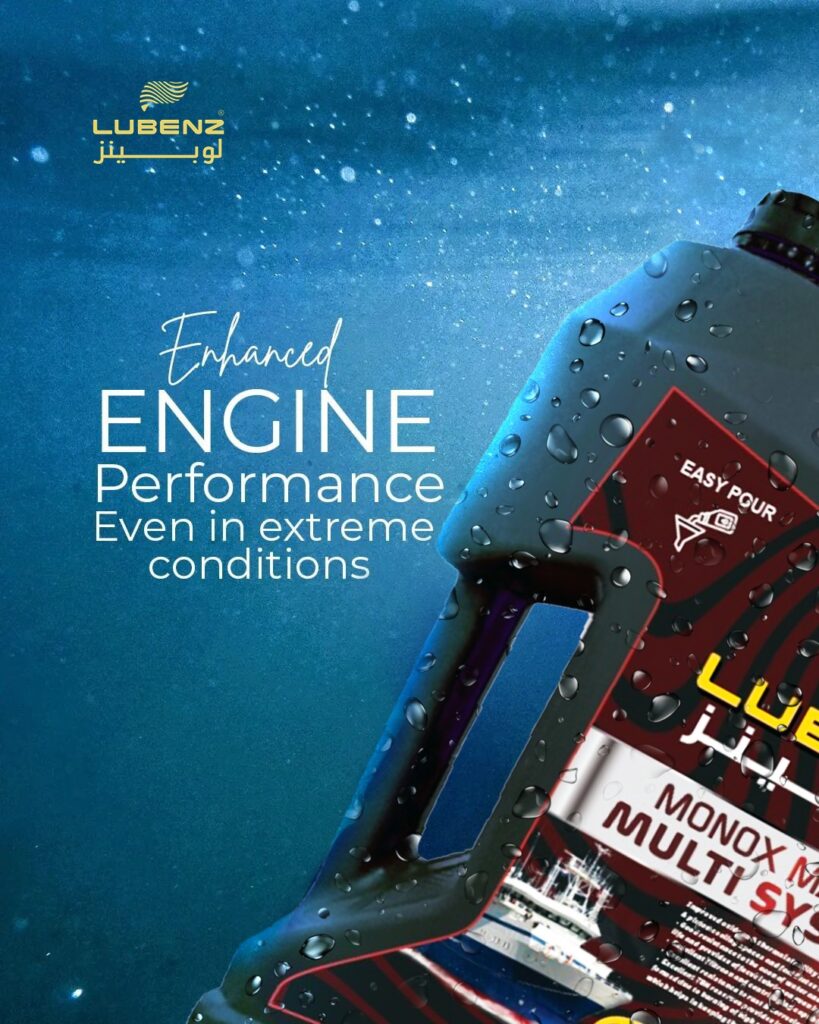Greases play a crucial role in today's world for several reasons:
Lubrication and Friction Reduction: Greases are primarily used to reduce friction and wear between moving parts in machinery and equipment. This helps in extending the lifespan of components and improving operational efficiency.
Protection Against Wear and Corrosion: They provide a protective barrier against corrosion, oxidation, and contaminants, which helps in maintaining the performance and reliability of mechanical systems even under harsh operating conditions.
Temperature Stability: Greases offer stability in a wide range of temperatures, making them suitable for applications where consistent performance across varying environmental conditions is required.
Sealing and Water Resistance: Some greases have sealing properties that prevent the entry of water and contaminants into critical components, thereby enhancing equipment reliability and longevity.
Specialized Applications: Greases are formulated to meet specific industry requirements, such as high-speed bearings, extreme pressures, and food-grade applications, demonstrating their versatility and adaptability across various sectors.
Environmental Impact: Modern greases are increasingly formulated with biodegradable and environmentally friendly additives, aligning with sustainability goals and reducing ecological impact.
In essence, greases are essential in today's industrial landscape for ensuring efficient, reliable, and sustainable operation of machinery and equipment across diverse industries, from automotive and manufacturing to aerospace and marine sectors. Their role in minimizing downtime, improving productivity, and extending equipment life makes them indispensable in modern engineering and technology.
WHY GREASES NEEDED
Greases are needed for several critical reasons in various industries and applications:
Lubrication: Greases provide lubrication by reducing friction between moving parts. This lubrication is essential for minimizing wear and tear on components, extending their lifespan, and ensuring smooth operation of machinery and equipment.
Protection: They offer protection against corrosion, oxidation, and contamination, which can degrade the performance and efficiency of mechanical systems. Greases create a protective barrier that shields components from environmental elements and harsh operating conditions.
Sealing: Some greases have sealing properties that help prevent the ingress of water, dust, and other contaminants into sensitive parts of machinery. This sealing capability enhances the reliability and durability of equipment, particularly in outdoor or industrial settings.
Temperature Stability: Greases maintain their consistency and lubricating properties across a wide range of temperatures, from extreme cold to high heat. This thermal stability ensures consistent performance of machinery in diverse operating environments.
Load Bearing Capacity: They possess high load-bearing capabilities, making them suitable for applications involving heavy loads and pressures. Greases help distribute the load evenly across surfaces, reducing friction and wear under intense operational conditions.
Specialized Applications: Greases are formulated for specific industry needs, such as automotive, aerospace, marine, industrial machinery, and food processing. Each formulation is tailored to meet the unique requirements of these sectors, ensuring optimal performance and compliance with industry standards.
Ease of Application: Greases are easy to apply and maintain, often requiring less frequent reapplication compared to liquid lubricants. This ease of use contributes to operational efficiency and reduces maintenance downtime.
In summary, greases are indispensable in industries where reliable lubrication, protection against wear and corrosion, and enhanced equipment performance are essential. Their versatility, durability, and specialized formulations make them a cornerstone of modern engineering and manufacturing processes.
WHAT IS LUBRICANTS
Lubricants are substances used to reduce friction and wear between surfaces in contact with each other. They are essential for ensuring smooth operation and extending the lifespan of machinery and equipment. Lubricants can be categorized into various types based on their composition and intended use:
Liquid Lubricants: These include oils and fluids that flow easily and are commonly used in automotive engines, industrial machinery, and hydraulic systems. They provide excellent lubrication and heat dissipation properties.
Solid Lubricants: Examples include graphite and molybdenum disulfide (MoS2), which reduce friction between surfaces by forming a protective layer. Solid lubricants are used in high-temperature and extreme pressure applications.
Greases: Greases are semisolid lubricants composed of a base oil thickened with a soap, such as lithium, calcium, or aluminum complex. They adhere to surfaces and offer long-lasting lubrication, particularly in applications where liquid lubricants would be impractical.
Dry Lubricants: These lubricants reduce friction without the use of liquids or greases. Examples include PTFE (polytetrafluoroethylene) coatings and graphite powders, which are used in applications where cleanliness or liquid presence is undesirable.
Lubricants serve several purposes beyond friction reduction, including heat dissipation, corrosion prevention, sealing against contaminants, and enhancing operational efficiency. They are vital across industries such as automotive, manufacturing, aerospace, marine, and many others where the smooth and reliable operation of machinery is critical.
LUBRICANTS ORGRESES MORE IMPORTANT
Both lubricants and greases are essential in different ways depending on the application:
Lubricants:
Importance: Lubricants in liquid form (oils and fluids) are crucial for providing continuous and efficient lubrication in many industrial and automotive applications. They flow easily and can reach critical areas within machinery, providing excellent heat dissipation and reducing friction.
Applications: Used in engines, hydraulic systems, gearboxes, and other components where continuous lubrication and cooling are necessary.
Greases:
Importance: Greases, on the other hand, are semisolid lubricants that are ideal for applications where oils would not stay in place or flow away due to gravity or high temperatures. They adhere well to surfaces and provide long-lasting lubrication and protection against contaminants.
Applications: Commonly used in bearings, joints, and other moving parts that require thicker lubrication and protection from water and dust.
Which is More Important?
Both lubricants and greases are equally important but serve different purposes. Lubricants (oils and fluids) are typically more versatile and used in a wider range of applications due to their ability to flow and provide consistent lubrication. Greases, however, excel in situations where adherence and resistance to displacement are critical, such as in heavily loaded bearings or components exposed to extreme conditions.
In summary, their importance depends on the specific needs of the machinery or equipment being lubricated. Choosing the right lubricant or grease for each application ensures optimal performance, longevity, and efficiency of industrial processes and mechanical systems.
Greases are effective in long rides or extended periods of use in various mechanical applications, particularly in situations where continuous lubrication and protection are crucial. Here are several reasons why greases are effective for long rides or extended use:
Adherence and Stability: Greases adhere well to surfaces and maintain their consistency over time, even under high temperatures and pressures. This ensures continuous lubrication and protection of critical components throughout the duration of the ride.
Reduced Maintenance Intervals: Greases typically require less frequent reapplication compared to liquid lubricants. This reduces the need for maintenance stops during long rides, improving operational efficiency and minimizing downtime.
Protection Against Wear and Corrosion: Greases form a protective barrier that shields components from wear, corrosion, and contaminants such as dust, dirt, and water. This protection is essential for maintaining the performance and longevity of bearings, joints, and other moving parts over long distances.
Temperature and Environmental Resistance: Many greases are formulated to withstand a wide range of temperatures and environmental conditions, making them suitable for diverse riding conditions—from hot and dry climates to cold and wet environments.
Load-Bearing Capacity: Greases have excellent load-bearing capabilities, which is critical for components subjected to heavy loads or prolonged stress during long rides. This capability helps distribute the load evenly and reduces frictional wear.
Consistent Performance: Unlike some liquid lubricants that may thin out or evaporate over time, greases maintain their lubricating properties and protective qualities consistently throughout the ride, ensuring reliable performance of machinery and equipment.
In summary, greases are highly effective for long rides due to their durability, adherence, and ability to provide sustained lubrication and protection. Choosing the right grease formulation tailored to specific riding conditions and equipment requirements is essential for optimizing performance and reliability over extended periods
Innovations and future trends in greases are driven by advancements in technology, sustainability goals, and industry-specific requirements. Here are some key areas of innovation and future trends in greases:
Nanotechnology Additives: Incorporation of nanoparticles, such as graphene and nanoclays, into grease formulations to enhance lubrication properties, reduce friction, and improve wear resistance.
Smart Greases: Development of smart lubricants that can monitor and adjust their properties based on operating conditions, such as temperature, load, and wear. This includes self-healing greases and those with embedded sensors for real-time performance monitoring.
Bio-based and Sustainable Greases: Increasing focus on greases derived from renewable sources, such as vegetable oils or biodegradable synthetic esters, to reduce environmental impact and meet regulatory requirements.
High-Performance Specialty Greases: Formulation of greases tailored for specific applications, such as extreme temperatures (high and low), high loads, corrosive environments, and food-grade applications. These greases are designed to offer superior performance and reliability under challenging conditions.
Improved Compatibility and Stability: Development of greases with enhanced compatibility with seals, elastomers, and materials commonly used in machinery. These greases maintain stability over a wide range of temperatures and operating conditions.
Grease for Electric Vehicles (EVs): Innovations in greases suitable for electric vehicle components, such as bearings and electric motors, which require lubrication that is electrically insulating, thermally conductive, and compatible with advanced materials.
Predictive Maintenance Solutions: Integration of grease condition monitoring technologies, such as spectroscopy and viscosity sensors, into predictive maintenance programs. This allows for early detection of lubricant degradation and proactive maintenance scheduling.
Regulatory Compliance and Sustainability: Continued focus on meeting stringent environmental regulations and sustainability standards through greases with reduced toxicity, lower environmental impact during production, and improved end-of-life disposal options.
These innovations and future trends in greases aim to enhance performance, reliability, and sustainability across various industries while addressing evolving technological and environmental challenges. As research and development in lubrication technology progress, greases will continue to play a critical role in optimizing equipment efficiency and longevity.
Greases can vary widely in their environmental impact depending on their composition, additives, and how they are used and disposed of. Here’s a breakdown of the environmental considerations related to greases:
Biodegradability: Some greases are formulated with biodegradable base oils and additives, which break down more easily in the environment compared to conventional petroleum-based greases. Biodegradable greases reduce environmental impact, especially in applications where leaks or spills could occur.
Toxicity: Certain additives used in greases, such as heavy metals or extreme pressure agents, can be harmful to the environment if they leach into soil or water systems. Environmentally friendly greases aim to minimize or eliminate these harmful additives.
Lifecycle Impact: The production, use, and disposal of greases can contribute to environmental impact. Factors such as energy consumption in manufacturing, resource extraction for raw materials, and the carbon footprint of transportation all play a role in determining overall environmental friendliness.
Regulatory Compliance: Many regions have regulations and standards governing the environmental impact of lubricants, including greases. Manufacturers often formulate greases to comply with these regulations, ensuring they meet specific toxicity limits and biodegradability criteria.
Sustainability Initiatives: As sustainability becomes a priority for industries, there is a growing trend towards developing greases that are sourced from renewable materials, have lower carbon footprints, and are designed for extended use intervals to reduce waste.
In summary, while some greases can have environmental drawbacks due to their composition and usage practices, there is a significant effort within the industry to develop and promote greases that are more environmentally friendly. These greases aim to minimize adverse impacts on ecosystems, human health, and natural resources through biodegradability, reduced toxicity, and adherence to strict environmental regulations.
Greases offer several advantages that make them indispensable in various industrial and mechanical applications:
Effective Lubrication: Greases provide excellent lubrication by forming a protective film between moving parts, reducing friction, and minimizing wear and tear. This helps extend the lifespan of components and ensures smooth operation.
GREASE Manufacturer in Morocco GREASE Manufacturer in Morocco GREASE Manufacturer in Morocco GREASE Manufacturer in Morocco GREASE Manufacturer in Morocco GREASE Manufacturer in Morocco GREASE Manufacturer in Morocco GREASE Manufacturer in Morocco GREASE Manufacturer in Morocco GREASE Manufacturer in Morocco GREASE Manufacturer in Morocco GREASE Manufacturer in Morocco
Adhesion and Stay-Put Properties: Unlike liquid lubricants, greases adhere well to surfaces and resist being displaced by gravity or vibration. This makes them ideal for applications where continuous lubrication is required over extended periods.
Protection Against Contaminants: Greases act as barriers against contaminants such as dust, dirt, water, and chemicals. This protection helps prevent corrosion and maintains equipment reliability even in harsh operating environments.
Temperature Stability: Many greases are formulated to withstand a wide range of temperatures, from extreme cold to high heat. This thermal stability ensures consistent performance and lubrication effectiveness across varying environmental conditions.
Load-Bearing Capacity: Greases have excellent load-carrying capabilities, making them suitable for applications involving heavy loads and high pressures. They help distribute load evenly across surfaces, reducing friction and wear on components.
Versatility: Greases come in various formulations tailored to specific applications, including automotive, industrial machinery, marine, aerospace, and food processing. This versatility allows for optimal performance in diverse operational settings.
Reduced Maintenance: Greases typically require less frequent reapplication compared to liquid lubricants, reducing maintenance costs and downtime. This is particularly beneficial in applications where access for lubrication is limited or challenging.
Specialized Formulations: Greases can be customized with additives such as anti-wear agents, rust inhibitors, and extreme pressure additives to enhance performance and meet specific operational requirements.
Compatibility: They are compatible with a wide range of materials and seals commonly used in machinery and equipment, ensuring compatibility and minimizing the risk of material degradation or seal damage.
Environmental Considerations: Advances in grease technology have led to formulations that are more environmentally friendly, with reduced toxicity and biodegradability, aligning with sustainability goals and regulatory requirements.
Overall, greases offer comprehensive lubrication solutions that improve equipment reliability, reduce maintenance needs, and enhance operational efficiency across various industrial sectors. Their ability to provide long-lasting protection and performance in challenging conditions makes them essential for ensuring the smooth and reliable operation of machinery and equipment.
GREASE Manufacturer in Morocco GREASE Manufacturer in Morocco GREASE Manufacturer in Morocco GREASE Manufacturer in Morocco GREASE Manufacturer in Morocco GREASE Manufacturer in Morocco GREASE Manufacturer in Morocco GREASE Manufacturer in Morocco GREASE Manufacturer in Morocco GREASE Manufacturer in Morocco
While greases offer numerous advantages, they also come with some disadvantages and considerations:
Limited Application in High-Speed Operations: Greases may not be suitable for high-speed applications due to their viscosity and potential for heat generation, which can affect efficiency and performance in certain machinery.
Potential for Contamination: Greases can attract and retain dirt, dust, and other contaminants, which, if not managed properly, can compromise lubrication effectiveness and lead to increased wear and component failure.
Compatibility Issues: Incompatibility with certain materials, seals, or additives used in machinery can lead to deterioration of components or reduced performance. Careful selection and testing are necessary to ensure compatibility.
Temperature Sensitivity: While many greases offer good temperature stability, extreme temperatures can still affect their viscosity and lubricating properties, requiring specific formulations for very high or low-temperature applications.
GREASE Manufacturer in Morocco GREASE Manufacturer in Morocco GREASE Manufacturer in Morocco GREASE Manufacturer in Morocco GREASE Manufacturer in Morocco GREASE Manufacturer in Morocco GREASE Manufacturer in Morocco GREASE Manufacturer in Morocco GREASE Manufacturer in Morocco GREASE Manufacturer in Morocco
Maintenance Challenges: Grease application and maintenance may require specialized equipment or techniques, particularly in applications where access is difficult or in remote locations.
Storage and Handling: Proper storage conditions are crucial to maintaining grease quality and performance. Incorrect storage can lead to contamination, separation, or degradation of the grease over time.
Environmental Impact: Some greases, particularly those containing petroleum-based additives or toxic substances, can have negative environmental impacts if not managed and disposed of properly. Advances in eco-friendly formulations aim to mitigate these concerns.
Cost Considerations: Greases, especially specialized formulations with additives or specific properties, can be more expensive than liquid lubricants. Cost-effectiveness should be evaluated based on the application's requirements and expected performance.
Complexity in Selection: Choosing the right grease for a particular application can be complex due to the variety of formulations available. Factors such as operating conditions, load requirements, and environmental considerations must be carefully considered.
Health and Safety: Handling greases, especially those with hazardous additives, requires adherence to safety protocols to prevent skin contact, ingestion, or inhalation of harmful substances.
Despite these disadvantages, proper selection, application, and maintenance practices can mitigate many of these challenges, ensuring that greases continue to provide effective lubrication and protection for machinery and equipment in various industries.
.
Grease wholesaler in Morocco
Grease supplier in Morocco



